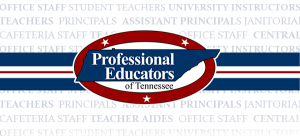Tennessee’s education scene is built on a shaky foundation of laws and policies, including those enacted during the 2025 legislative session.
Imagine policymakers debating funding and student outcomes while juggling the challenges of teacher retention and student discipline. It’s all fun and games until someone brings up vouchers — then the debate intensifies and everyone retreats to their corners, ready to fight.
So, let’s talk about vouchers, shall we? They were the rock stars of this past legislative session. Implementing them has been somewhat clandestine. Most kids receiving vouchers were already in private schools, so claiming that competition improves public schools feels like saying that eating salad makes you Arnold Schwarzenegger.
Meanwhile, some folks are still talking about cultural concerns in our public schools, while many others see vouchers funneling cash into “Islamic indoctrination” in Muslim private schools. And guess what? Muslim schools accepting vouchers might attract families to Tennessee, just like their counterparts nationwide. Will the state end up paying to educate children in Sharia-run institutions? That’s a valid question to ask policymakers. Does that matter? That is a question to ask yourself.
The Tennessee Constitution requires the state to provide a system of free public schools, with the General Assembly responsible for setting maintenance, support, and eligibility standards for this system. Public education is the backbone of our economy. Since 90% of Tennessee's children attend public schools, supporting education is not just a good idea — it’s essential. Currently, the main debate revolves around whether expanding voucher programs actually improves the performance of public schools.
Tennessee’s voucher program uses public funds to support private institutions. That issue is unlikely to change, unless it becomes an issue at the ballot box. The media have noted that public school students in Hamilton County have outperformed voucher recipients for two consecutive years.
The strategy appears to be for policymakers to push universal vouchers as the panacea for all educational ills, leaving behind the promise of a stellar public education for every child. We’ve seen a surge of out-of-state money flooding our elections, propping up the voucher movement as if it’s a heavyweight bout between public education advocates and billionaire donors. One notable voucher champion lost his job with a national group after it was revealed that he had a previous gig in adult male films.
Educators agree that public schools need a makeover, and they’re not talking about a fresh coat of paint. Change is necessary, but research often overlooks what teachers really need to educate children. Instead of being bogged down in bureaucracy, we should prioritize student discipline and allocate more planning time to teachers. Currently, student behavior remains a significant issue across the state.
Some of our current discipline methods are like using a typewriter in a world of laptops. “Restorative justice” approaches consume teachers’ time but don’t appear to reduce misbehavior. In Memphis-Shelby County Schools, choosing not to participate in training led to a 30% decrease in students receiving essential suicide and bullying prevention education. Meanwhile, violent students are injuring teachers and staff nationwide, including here in Tennessee. Recent rule changes let schools remove students more quickly during behavioral assessments, which sounds good until you realize it might raise more concerns than a magician pulling a rabbit out of a hat.
Teacher quality is essential for student success, and we need to overhaul our evaluation systems—especially in light of the federal changes implemented during the Trump administration. But there’s a positive side: the science of reading is becoming a primary focus in teacher training, and our graduation rates are increasing for the fourth year in a row. The Tennessee Higher Education Commission reported a 2.3% rise in enrollment, with nearly 5,000 more students attending class. It’s like a post-pandemic education revival!
State officials must start respecting and empowering citizens by prioritizing education and maintaining transparency. Research your politicians—know what they do, who supports them legislatively, and who is funding their campaigns.
As Ronald Reagan once said, “History comes, and history goes, but principles endure.” Individual liberty is essential to our state’s strength, but trust disappears without participation, transparency, and collaboration. Let’s ensure those elements stay central to our political process.
Get ready, Tennessee! The debates are heating up once more, and you won't want to miss a moment of it!
##
JC Bowman is the executive director of Professional Educators of Tennessee.











